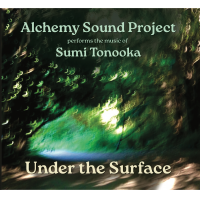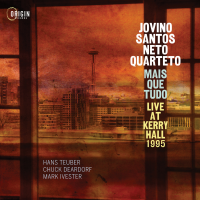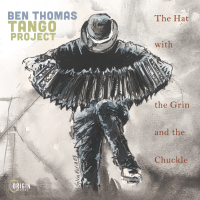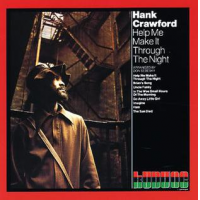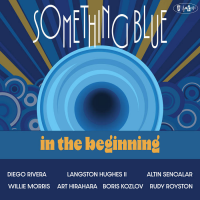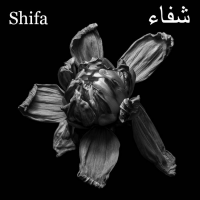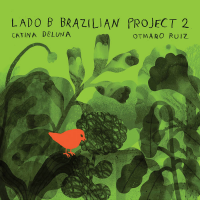Home » Jazz Articles » Liner Notes » Verve's Bossa Nova U.S.A.
Verve's Bossa Nova U.S.A.
Paul Desmond: Samba with Some Barbecue
Originally titled "Struttin' with Some Barbecue" in 1941, this Satchmo tune lost its Dixie beat and got a bossa groove in the hands of the infallible
Don Sebesky
arranger1937 - 2023

Airto Moreira
percussionb.1941

Paul Desmond
saxophone, alto1924 - 1977

Gene Ammons
saxophone, tenor1925 - 1974

Sonny Rollins
saxophoneb.1930

Louis Armstrong
trumpet and vocals1901 - 1971
Wes Montgomery: O Morro [aka Once I Loved]

Wes Montgomery
guitar1923 - 1968

Oliver Nelson
saxophone1932 - 1975

Frank Sinatra
vocals1915 - 1998
Gary McFarland: Dreamer

Gary McFarland
vibraphone1933 - 1971

Antonio Carlos Jobim
piano1927 - 1994

Stan Getz
saxophone, tenor1927 - 1991
Bill Evans: The Dolphin
Probably the most influential jazz pianist of all time,
Bill Evans
piano1929 - 1980

Earl Zindars
composer / conductor1927 - 2005

Eliot Zigmund
drumsb.1945

Marty Morell
drumsb.1944
Stan Getz: O Grande Amor
In the liner notes for "Sweet Rain," jazz radio DJ Johnny Magnus talks about Getz's connection with the bossa nova: "Things could have not been timed better. Time, place and opportunity came together and with a stroke of perfect casting. Producer-Director Creed Taylor assembled his cast, The property... Brazil. Not just a tune...a guitarist or a group...the whole country! Brazil became a musical phenomenon. Stan Getz made it a happening." This Jobim song, "O Grande Amor," was recorded by Getz for the first time in 1963, for Getz/Gilberto, and four years later he decided to cut another version, this time an instrumental one, during the single-day session that resulted on Sweet Rain, doing an even better solo, more subtle, although in a faster tempo, followed by another pretty solo by
Chick Corea
piano1941 - 2021
Charlie Byrd: Desafinado
Although Stan Getz got the credit and fame (and most of the money) for being bossa nova's number one jazzman, it was
Charlie Byrd
guitar1925 - 1999

Keter Betts
bass, acousticb.1928

Ella Fitzgerald
vocals1917 - 1996
Hank Jones & Oliver Nelson: Mas Que Nada
It's one of the lesser known recordings of one of the most famous Brazilian songs around the world. From Jorge Ben himself to Tamba Trio to Al Jarreau and, most recently, Ithamara Koorax (one of the highlights from A Trip To Brazil Vol.2) many artists cut inspired versions. Oliver Nelson's cyber-biographer Douglas Payne considers it "a wondrous arrangement using haunting melody statements with a light counterpoint of flute and brass. The harpsichord is an inspired touch, that comes at a time when Bob Thiele was working all kinds of deals with music manufacturers to place their instruments on his prductions. The man had cross-promotional marketing down long before Star Wars! The cool thing is that Thiele understood that the antiquated harpsichord had a sort of rock-and-roll appeal: square to be hip?" Like
Lalo Schifrin
arranger1932 - 2025

João Donato
piano1934 - 2023
Coleman Hawkins: Um Abra?o No BonfЁў
This amazing tune was composed by Jo?o Gilberto in 1960 as a tribute to Luiz BonfЁў, a bossa pioneer and one of Gilberto's idols, as well as his main inspirational source for the modern guitar beat that eventually became the rhythmic underpinnings of bossa nova. It's interesting to mention that "Um Abra?o no BonfЁў" is actually based on a tune co-written by BonfЁў and Jobim in 1955, "O Barbinha Branca." Though he enjoyed the homage, BonfЁў observed that Gilberto basically just changed the song from a "choro" to a "bossa" form and added a second part! Gilberto himself recorded the song twice, on "O Amor, o Sorriso e a Flor" (Odeon) and Getz/Gilberto #2 (Verve). In the liner notes for Hawkins' session, on which Barry Galbraith plays the lead guitar part, jazz historian Dan Morgenstern wrote: "It has the longest line and most intricate structure (ABCDE) of all the sambas on this album. It hЁўs a built-in perpetual motion effect, almost hypnotic in impact. Hawk's creative embellishments are a joy... Hawk approached his first bossa nova date with the blend of complete relaxation and intense concentration which characterizes his musical stance."Vince Guaraldi Trio: Manh? de Carnaval
Black Orpheus—winner of the Grand Prize in Cannes as well as the Academy Award for Best Foreign Film in 1959—fascinated audiences worldwide thanks to its intoxicating soundtrack, written (separately) by BonfЁў and Jobim. The film's main themes, "Manh? de Carnaval" and "Samba de Orfeu," both by
Luiz Bonfa
guitar, acoustic1922 - 2001

Vince Guaraldi
piano1928 - 1976
Bob Brookmeyer Samba de Orfeu
Maybe the greatest master of valve trombone, alongside Raul de Souza,
Bob Brookmeyer
trombone1929 - 2011
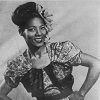
Carmen Costa
vocals
Jim Hall
guitar1930 - 2013

Jimmy Raney
guitar, electric1927 - 1995
Kenny Burrell: Nan?
Kenny Burrell's take on "Nan?," the most famous song by the extremely underrated Brazilian arranger and baritone saxophonist, is a track that appeals to head, heart, and hips. Curiously, though, Santos isn't the saxophonist neither the arranger on this version, included in the album that led
Kenny Burrell
guitar, electricb.1931

Benny Golson
saxophone, tenor1929 - 2024
Milt Jackson: Jazz Bossa Nova
Every time that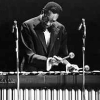
Milt Jackson
vibraphone1923 - 1999

Modern Jazz Quartet
band / ensemble / orchestrab.1952
Joe Pass & Paulinho da Costa: Wave
After some laid-back relaxed grooves comes a momento of joyful excitement. And speed! Done at a much faster tempo than usual, Jobim's classic "Wave" belongs to a
Joe Pass
guitar1929 - 1994

Paulinho Da Costa
percussionb.1948

Don Grusin
pianob.1941

Sergio Mendes
piano1941 - 2024

Dizzy Gillespie
trumpet1917 - 1993

Oscar Castro-Neves
guitar1940 - 2013
Oscar Peterson Trio: Triste
Once in a while, piano jazz virtuoso
Oscar Peterson
piano1925 - 2007
Cal Tjader: Tamanco no Samba
In the mid-Sixties, after some albums with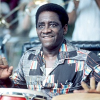
Mongo Santamaria
percussion1917 - 2003

Cal Tjader
vibraphone1925 - 1982

George Duke
piano1946 - 2013
Quincy Jones: Bossa Nova U.S.A.
Since his early days, when he performed for the first time in Brazil and other South American countries in 1956, as a member of a Dizzy Gillespie Orchestra in a tour sponsored by the U.S. Department of State,
Quincy Jones
arranger1933 - 2024

Patti Austin
vocalsb.1948

George Benson
guitarb.1943
Liner Notes copyright ? 2025 Arnaldo DeSouteiro.
Bossa Nova USA can be purchased here.
Contact Arnaldo DeSouteiro at All About Jazz.
Grammy-voting member, record producer, jazz journalist, historian and educator, screenplay writer, arranger.
Personnel
Arnaldo DeSouteiro
producerQuincy Jones
arrangerDave Brubeck
pianoBill Evans
pianoGary McFarland
vibraphonePaul Desmond
saxophone, altoStan Getz
saxophone, tenorWes Montgomery
guitarMilt Jackson
vibraphoneOscar Peterson
pianoCal Tjader
vibraphoneBob Brookmeyer
tromboneKenny Burrell
guitar, electricOliver Nelson
saxophoneHank Jones
pianoCharlie Byrd
guitarAntonio Carlos Jobim
pianoLuiz Bonfa
guitar, acousticJoe Pass
guitarPaulinho Da Costa
percussionAlbum information
Title: Bossa Nova USA | Year Released: 2012 | Record Label: Verve Music Group
Tags
Comments
PREVIOUS / NEXT
Support All About Jazz
 All About Jazz has been a pillar of jazz since 1995, championing it as an art form and, more importantly, supporting the musicians who make it. Our enduring commitment has made "AAJ" one of the most culturally important websites of its kind, read by hundreds of thousands of fans, musicians and industry figures every month.
All About Jazz has been a pillar of jazz since 1995, championing it as an art form and, more importantly, supporting the musicians who make it. Our enduring commitment has made "AAJ" one of the most culturally important websites of its kind, read by hundreds of thousands of fans, musicians and industry figures every month.





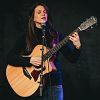
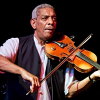



 Buy Now
Buy Now


